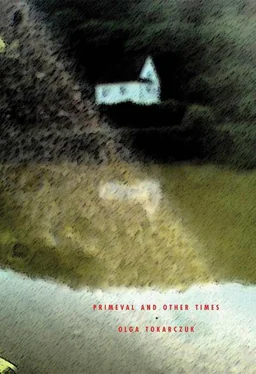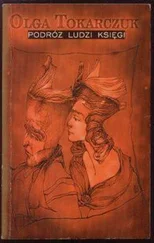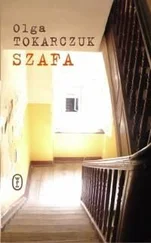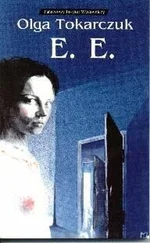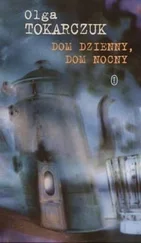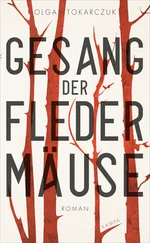God also worried Cornspike physically. He was present within her breasts, which suddenly and miraculously filled with milk. When people found out about it, they secretly came to Cornspike and placed sick parts of their bodies under her nipples, and she squirted a white stream on them. The milk cured young Krasny’s eye infection, the warts on Franek Serafin’s hands, Florentynka’s ulcer, and a skin rash on a Jewish child from Jeszkotle.
Everyone who was cured was killed during the war. That is how God manifests Himself.
THE TIME OF SQUIRE POPIELSKI
God manifested Himself to Squire Popielski through the Game the little rabbi had given him. The squire tried over and over to start the Game, but he found it hard to understand all the bizarre instructions. He took out the little book and read the rules until he knew them just about by heart. To start the Game, you had to throw a one, but every time he tried the squire threw an eight. It was contrary to all the principles of probability, and the squire thought he had been cheated. The strange, eight-sided die could have been distorted. But as he wanted to play honestly, he had to wait until the next day – those were the rules of the Game – to have another throw. And once again he was unsuccessful. This went on all spring. The squire’s amusement changed into impatience. In the unsettled summer of 1939 the stubborn number one finally appeared, and Squire Popielski could breathe again. The Game had started.
Now he needed a lot of spare time, peace and quiet – the Game was absorbing. It demanded concentration even during the day when he wasn’t playing it. In the evenings he shut himself in the library, laid out the board, and spent a long time rolling the eight-sided die in his hands. Or he carried out the Game’s instructions. It annoyed him to be wasting such a lot of time, but he couldn’t stop.
“There’s going to be a war,” said his wife.
“There are no wars in the civilized world,” he replied.
“Indeed, there might not be any in the civilized world, but there is going to be a war here. The Pelskis are leaving for America.”
On hearing the word “America” Squire Popielski fidgeted nervously, but nothing had the same meaning as it had before – before the Game.
In August the squire enrolled for conscription, but he was discharged in view of his state of health. In September they listened to the radio until it started to speak in German. In the night the squire’s wife buried the silver in the park. The squire spent whole nights sitting over the Game.
“They didn’t even fight. They came home. Paweł Boski didn’t even pick up a weapon,” wept the squire’s wife. “We’ve lost, Felix.”
He nodded pensively.
“Felix, we’ve lost the war!”
“Leave me in peace,” he said and went into the library.
Every day the Game revealed something new to him, something he didn’t know and hadn’t sensed. How was it possible?
One of the first instructions was to dream. To move on to the next square, the squire had to dream he was a dog. “How bizarre,” he thought in disgust. But he went to bed, thought about dogs, and that he himself could be a dog. In these visions before falling asleep he imagined himself as a dog, a hound that hunts waterfowl and chases around the common land. But in the night his dreams did what they wanted. It was hard to stop being a man in them. A certain degree of progress appeared with a dream about the ponds. Squire Popielski dreamed he was an olive-green carp. He was swimming in green water, where the sun was nothing but blurred light. He had no wife, he had no manor house, nothing belonged to him and nothing mattered to him. It was a beautiful dream.
That day, when the Germans turned up at his manor house, at dawn the squire finally dreamed he was a dog. He was running about the market square in Jeszkotle looking for something, he himself did not know what. He dug up some food scraps from under Szenbert’s shop and ate them with relish. He was attracted to the smell of horse manure and human faeces in the bushes. Fresh blood smelled like ambrosia.
The squire woke up amazed. “It’s irrational, quite absurd,” he thought, but he was pleased the Game would be able to move onwards.
The Germans were very polite. Captain Gropius and another one. The squire came out of the house to meet them. He tried to keep his distance.
“I understand you,” Captain Gropius interpreted the sour look on his face. “Unfortunately we are here before you as invaders, an occupying force. But we are civilized people.”
They wanted to buy a lot of wood. Squire Popielski said he would take care of supplying the wood, but deep down he had no intention of tearing himself away from the Game. At that the entire conversation between the occupants and the occupied came to an end. The squire went back to the Game. He was glad he had already been a dog, and now he could move onto the next square.
That night the squire dreamed he was reading the instructions for the Game. The words jumped before his sleeping vision, because the part of the squire that was dreaming was not a fluent reader.
The Second World was made by the young God. He did not yet have experience, and so in this world everything is faded and indistinct, and things crumble to dust more quickly. War goes on eternally. People are born, love desperately, and soon die of sudden death, which is everywhere. But the more suffering life brings them, the more they want to live.
Primeval does not exist. It has not even come into being, because hordes of starving troops are constantly trailing from east to west across the land where someone might have founded it. Nothing has a name. The earth is full of bomb holes, both rivers, sick and wounded, churn their turbid water, and it is hard to tell them apart. Stones fall apart in the fingers of hungry children.
In this world Cain met Abel in the field and said: “There is no law and no judge! There is no world beyond, no reward for the righteous and no punishment for the evildoers. This world was not created in good grace, it is not governed by sympathy. For why was your sacrifice accepted and mine rejected?” Abel replied: “Mine was accepted because I love God, and yours was rejected because you hate Him. People like you should not exist at all.” And Abel killed Cain.
Kurt saw Primeval from the lorry that brought the Wehrmacht soldiers. For Kurt, Primeval was no different from the other foreign villages they had passed in this foreign, enemy country. And the villages were not much different from the ones he knew from his holidays. They may have had narrower streets, poorer houses, funny lopsided wooden fences, and whitewashed walls. Kurt was no expert on villages. He came from a big city and he missed it. He had left his wife and daughter in the city.
They did not try to set up billets in the peasant houses. They requisitioned Cherubin’s orchard and started building themselves wooden barracks. One of them was going to house the kitchen, which Kurt ran. Captain Gropius took him by jeep to Jeszkotle and the manor house, to Kotuszów and the neighbouring villages. They bought wood, cows, and eggs for prices they set themselves – very low, or else they didn’t pay at all. This was when Kurt saw the defeated enemy country close up, came eye to eye with it. He saw baskets of eggs brought out of cubbyholes, with streaks of hen’s droppings on the creamy-white shells, and the hostile, malevolent glances of the peasants. He saw ungainly, scrawny cows and admired the affection with which they were tended. He saw hens scratching in heaps of manure, apples dried in attics, round loaves baked once a month, bare-foot, blue-eyed children whose shrill voices reminded him of his daughter. But it was all alien to him. Maybe because of the primitive, harsh language they spoke here, maybe because the facial features were strange. Sometimes, when Captain Gropius sighed and said this entire country should be razed to the ground and a new order built on this spot, Kurt thought the captain was right. It would be cleaner and nicer here. At other times, the unbearable thought occurred to him that he should go home and leave these stretches of sandy ground, these people, cows, and baskets of eggs in peace. At night he dreamed of his wife’s smooth, fair body, and in the dream everything smelled safe and familiar, completely different from here.
Читать дальше
